Heavy Equipment Financing Services
Sharing our expertise and solutions with small and medium business owners looking for construction and heavy equipment financing.
Heavy Equipment Financing
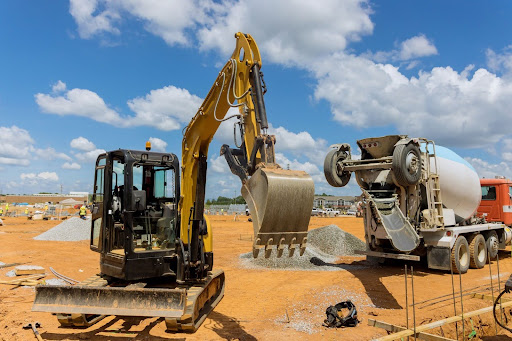
For over 40 years, Charter Capital has been a trusted source when it comes to heavy equipment financing and construction equipment financing. We’ve worked with thousands of clients over the past four decades to identify and obtain the best heavy equipment loans and leasing options for their businesses. As a premier heavy equipment financing company, we have the experience and industry knowledge to help you find the right financing plan for your business needs.
Heavy equipment can be a significant investment. That’s why it’s important to partner with a financing company that can offer you the best options to fit your budget and needs. At Charter Capital, we offer a variety of heavy equipment financing solutions, including loans and leases, to help you get the equipment your business need. We understand the diverse equipment financing needs of companies in sectors like trucking, construction, manufacturing, waste management, and more. We provide flexible funding programs tailored to support the acquisition of essential equipment to keep your business on track and moving in thrright direction.
We’re fast, friendly, and fair. Above all, we want to help you. Our goal is to see you succeed and grow continuously. If you are in the Arizona area, you will find us when searching for “heavy equipment financing near me” or “top heavy equipment financing companies” online, but we also cater to clients beyond Arizona and across the country.
Some of the examples of heavy equipment financing programs we’ve supported in the past include:
- Construction equipment
- Machine tools
- Trucks and semi rentals
- Production equipment
- Warehouse equipment
- Tractors and farm equipment
- Factory equipment
- Industrial equipment
- Technological equipment
Your success is our success. We want to share our heavy equipment financing capabilities with you. As a family-run loan and leasing broker, building a relationship with you and your company sits at the core of everything we do.
We’re not going to disappear when a deal closes. Instead, our equipment financing programs pave the way for a partnership built on trust and reliability. We have helped thousands of small and medium-sized businesses start or scale their ventures with various equipment financing solutions, heavy equipment loans included. You can trust that we will be here for you when you need us.
Finding the funds to purchase heavy equipment is no small feat, especially for small and medium-sized businesses — but it shouldn’t be complicated. That’s what Charter Capital is here for: to provide you with heavy equipment loans and lease options that are affordable and reliable. Contact us today to find out more about the heavy equipment financing solutions best suited for you.
Some of our customers…
- Are interested in the lowest rate.
- Are interested in a specific tax treatment.
- Want to avoid breaching existing lending covenants.
- Are interested in the longest term.
- Are interested in getting reimbursed for equipment they have already paid for.
- Want seasonal or other cyclical structures.
- Want to finance software.
- Want to us to give the seller a deposit before the equipment is shipped?
All of our customers want a fair deal at a fair price and no surprises. We work to provide your business with terms and conditions that meet your expectations and current needs.
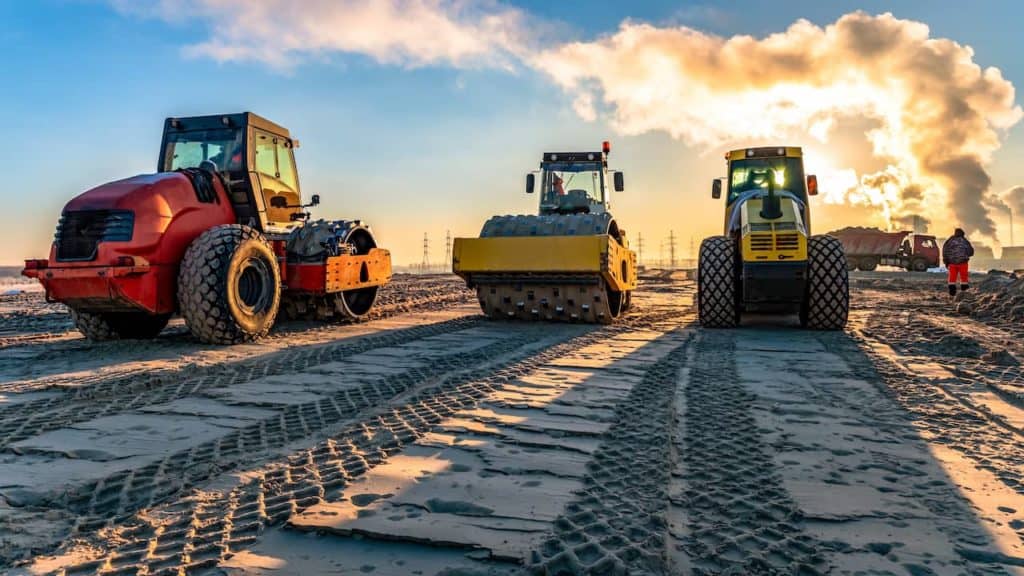
Some of our customers...
- Are interested in the lowest rate.
- Are interested in a specific tax treatment.
- Want to avoid breaching existing lending covenants.
- Are interested in the longest term.
- Are interested in getting reimbursed for equipment they have already paid for.
- Want seasonal or other cyclical structures.
- Want to finance software.
- Want to us to give the seller a deposit before the equipment is shipped.
All of our customers want a fair deal at a fair price and no surprises.
Construction & Heavy Equipment Financing
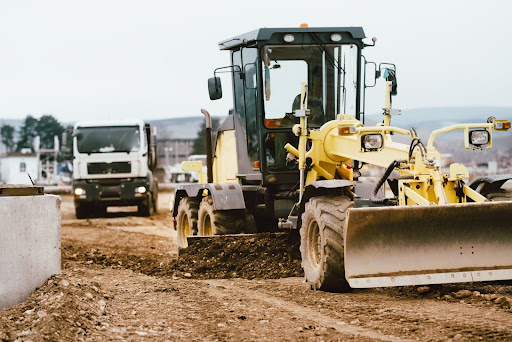
If your company needs to acquire construction equipment to grow, to remain competitive, or to replace a piece of equipment that no longer does the job, Charter Capital has the solutions for you.
Here are a few areas and types of construction and heavy equipment with which we can help you find financing: Consult your local dealer for specific details and personalized service.
- New or used construction equipment
- General machine equipment
- Cranes
- Yellow iron
- Bulldozers
- Scrapers
- Graders
- Forklifts
- Excavators
- Dump trucks
- Snow plows
The path to securing construction equipment financing does not have to be confusing. Prepare ahead of time so that you’re informed and ready to make a wise decision.
About Heavy Equipment Financing
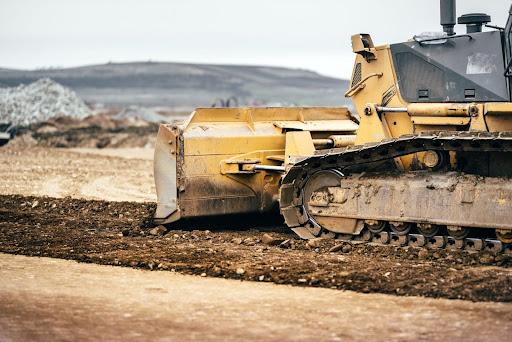
Doing anything for the first time is risky, whether it be getting a new job or founding your very first startup. Finding the capital for your heavy equipment is no different. Questions related to which equipment financing company is trustworthy, what the requirements are, and how long the entire application process will go are likely on your list of unknowns.
These are all valid questions if this is your first exposure to heavy equipment financing and leasing. It’s important to note that the figures presented are estimates for research purposes only, and actual prices, payments, and taxes may differ based on specific conditions and consulting local dealers.
Heavy equipment finance programs can reduce upfront costs.
Buying heavy equipment upfront is not always a good idea. For many businesses, the money that would be spent to purchase the machines would be better used in another area of the venture that supports growth.
When looking at your account statements and future expenses, you must decide if purchasing heavy equipment outright makes financial sense. If not, equipment financing is a better option. By obtaining a heavy equipment loan from a lender that understands your situation, you can manage your debt and avoid tying up a large portion of funds in machine purchases. Not all heavy equipment financing companies are the same. You will want to partner with a provider that is easy to work with, and that offers a wide array of options.
There are several advantages to heavy equipment financing.
Financing with the right company comes with a lot of great options, including:
- Having the ability to choose a payment plan that best fits your needs and capacity.
- Taking advantage of flexible payment schemes means you can still run your business while paying back the money you owe on a schedule that works for you.
- Obtaining access to a wide network of trusted lenders who provide heavy equipment financing and leasing support.
If you are a small company or startup that simply does not have enough funding at the outset, then looking into heavy equipment financing is definitely a practical solution. By financing, you take one step closer to getting the capital that you need when you need it. This can be what differentiates a successful business from one that inevitably fails. View our equipment financing tips for startups for more information.
Financing heavy equipment can be challenging, just like construction equipment financing. Our mission at Charter Capital is to simplify the process for you and guide you along the way so that your business can find success with the right heavy equipment loan or lease provider.
Feel free to reach out to our team to learn more about our flexible financing solutions for heavy equipment and all other types of machines and furniture. We are here to help your business grow and thrive!
Financing Heavy Equipment With Bad Credit
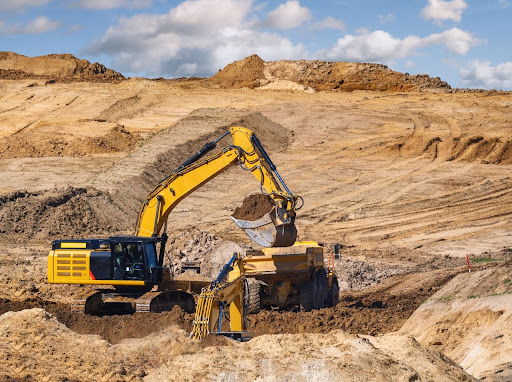
You may not get 100% financing if your credit is less than ideal, so make sure that before reaching out to a financing company you know what your credit situation is. The reality is that a low credit score impedes the process of obtaining heavy equipment financing.
Preparing to apply for financing with a bad credit history
If you have had late credit card payments, defaulted on some loans, or have a history of bad credit, it can be hard to get financing for your business. This is especially true if you are looking to finance heavy equipment, which no doubt comes with a hefty price. The reason why lenders might avoid financing your request is that they see lending to you as a great risk. They are reluctant to provide equipment loans to a business or individual that has a history of missed or late payments.
With that said, the key is to be prepared in all aspects. You need to do your research ahead of time and always be prepared with a good credit history.
Creative ways to obtain heavy equipment financing
If your credit score prevents you from acquiring heavy equipment loans at a reasonable rate, think twice before stepping into a difficult loan agreement. It might take some time before you can build your credit up enough in the eyes of traditional lenders. While you’re at it, consider alternative financing options.
Many businesses are searching for heavy equipment financing options during this time. From angel investors to partnerships with other businesses, an array of financing and leasing solutions are available — even if you have bad credit. Read our 13 financing options article to learn more about these opportunities.
Heavy Equipment Financing Checklist: A Guide for Business Owners
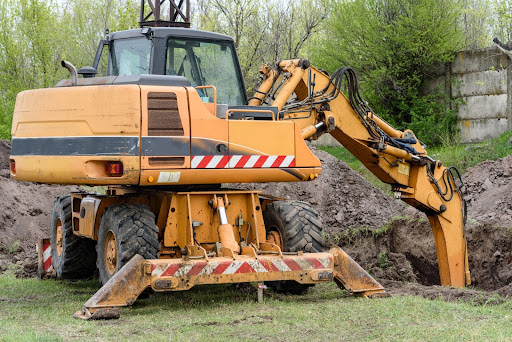
Securing financing for heavy equipment requires careful planning and preparation. Below is a comprehensive checklist to help business owners and those seeking financing ensure they have all necessary documentation, financial considerations, and strategic planning in place.
Financial & Business Considerations
☐ Proof of Business Income & Cash Flow Analysis
- Prepare financial statements, including income statements, balance sheets, and cash flow reports.
- Demonstrate a stable cash flow to show lenders your ability to repay the loan.
- If your business is seasonal, show how you plan to cover payments during slow periods.
☐ Business Credit Score & Credit History
- Check business and personal credit scores, as they can impact loan approval and interest rates.
- Address any negative marks or outstanding debts before applying.
- If you have limited credit history, consider building credit or looking for alternative financing options.
☐ Tax Returns & Bank Statements
- Gather at least two years of business tax returns and several months of bank statements.
- Lenders often require profit and loss statements (P&L) to assess financial health.
☐ Business Structure & Registration Documents
- Ensure your business is legally registered and provide an EIN (Employer Identification Number) if required.
- Have articles of incorporation or operating agreements ready, especially for LLCs or corporations.
Loan & Financing Details
☐ Loan Amount & Repayment Terms
- Determine the total amount needed and research standard loan terms (3-7 years is common for heavy equipment loans).
- Consider the down payment amount (typically 10-30%) and ensure funds are available.
☐ Collateral & Down Payment Options
- Heavy equipment can serve as collateral, but lenders may require additional assets.
- Consider other forms of collateral, such as real estate, inventory, or business assets, if necessary.
☐ Interest Rates & Fees
- Compare interest rates across different lenders (fixed vs. variable rates).
- Look out for hidden fees, such as origination fees, prepayment penalties, and late payment charges.
☐ Leasing vs. Buying Equipment
- Consider whether leasing or financing is better for your business needs.
- Leasing may offer lower upfront costs, while buying allows ownership and potential tax benefits.
☐ Lender Options & Loan Pre-Approval
- Compare banks, credit unions, online lenders, and heavy equipment financing companies.
- Get pre-approved to understand potential loan terms before committing.
Equipment Selection & Pricing
☐ Intended Equipment Use & Maintenance Plan
- Be prepared to explain how the equipment will be used to generate business revenue.
- Some lenders require a maintenance and repair plan to ensure longevity and loan security.
☐ Equipment Cost & Market Value
- Get a detailed quote from a dealer or seller, including price, taxes, and any additional fees.
- Research the resale value and expected depreciation rate of the equipment.
☐ New vs. Used Equipment Considerations
- New equipment typically comes with a warranty but is more expensive.
- Used equipment may be more affordable but could require higher maintenance costs.
☐ Equipment Inspection & Verification
- If purchasing used, inspect the equipment for wear and tear.
- Request maintenance records and check for any outstanding liens on the equipment.
☐ Insurance & Warranty Coverage
- Ensure the equipment has comprehensive insurance coverage (theft, damage, liability).
- Consider extended warranties to protect against unexpected repairs.
Post-Financing & Business Growth
☐ Loan Repayment & Financial Planning
- Set up automated payments to avoid late fees.
- Monitor cash flow to ensure you can cover loan payments while maintaining business operations.
☐ Scaling & Future Equipment Needs
- Consider how the equipment will impact long-term business growth.
- Evaluate whether additional financing will be needed in the future.
☐ Tax Deductions & Write-Offs
- Explore Section 179 tax deductions to write off equipment costs.
- Consult with an accountant to maximize tax benefits.
☐ Lender Relationship Management
- Maintain a strong relationship with your lender to access better financing opportunities in the future.
- If financial struggles arise, communicate early with your lender about restructuring options.
Heavy Equipment Financing FAQs
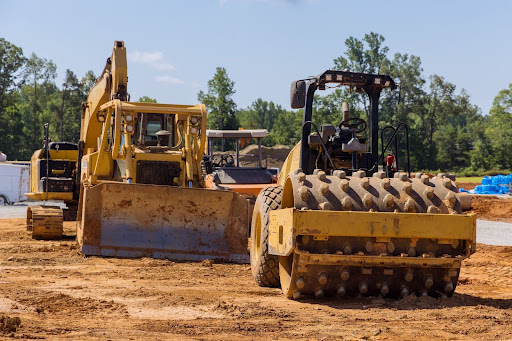
Below are some of the frequently asked questions about financing heavy equipment:
What is the Typical Pricing for Key Equipment Pieces?
The cost of the equipment will be one of the primary factors in your decision to finance. You want to make sure that you are getting the best deal on the equipment. Construction machines, for example, can range from a few hundred dollars to tens of thousands, depending on size, function, brand, and other factors. A tractor from Caterpillar would likely cost around $100,000, while a Bobcat skid-steer loader might cost $30,000.
How Much Does it Cost to Finance Heavy Equipment?
The cost of financing heavy equipment will also depend on the lender you are working with and your credit score. However, in general, the cost of financing heavy equipment is relatively low.
What are the Requirements for Financing Heavy Equipment?
In order to qualify for financing, you will need to have a good credit score and a strong business plan. You will also need to provide the lender with some financial documents, such as your tax returns and bank statements.
What Credit Score Do You Need to Buy Heavy Equipment?
Most lenders prefer a credit score of 600 or higher for equipment financing, though some may approve loans for borrowers with scores as low as 500 if they provide a larger down payment or collateral. Businesses with strong financials and steady revenue can sometimes secure financing despite lower credit scores.
Do Equipment Loans Require a Down Payment?
The down payment requirement depends on the lender, creditworthiness, and loan terms. Some lenders offer 100% financing, but many require 10% to 25% down. A higher down payment can lead to lower monthly payments and better interest rates.
How Long Can You Finance Heavy Equipment?
Heavy equipment financing terms typically range from 12 to 84 months (1 to 7 years), depending on the equipment’s cost, type, and expected lifespan. Longer loan terms can reduce monthly payments, while shorter terms minimize interest costs.
Who Has the Best Equipment Financing?
The best equipment financing provider depends on your needs. Banks and credit unions offer lower interest rates but stricter approval requirements, while alternative lenders and equipment financing specialists provide more flexible terms with quicker approvals. Charter Capital specializes in customized financing solutions tailored to small and medium-sized businesses.
What Is the Average Interest Rate for an Equipment Loan?
Interest rates for equipment loans vary based on creditworthiness, lender, and loan terms. Typical rates range from 5% to 30%, with lower rates available for borrowers with strong credit and financials. Lease financing may have different cost structures based on residual values and payment terms.
Is Equipment Loan Interest Tax Deductible?
Yes, in most cases, interest paid on an equipment loan is tax-deductible as a business expense. Additionally, Section 179 of the IRS tax code allows businesses to deduct the full purchase price of qualifying equipment in the year it is acquired. Always consult with a tax professional for details.
Is Equipment Financing Considered Debt?
Yes, equipment financing is considered a form of business debt. However, because the equipment itself serves as collateral, it is typically easier to qualify for compared to unsecured business loans. Leasing can be an alternative option for businesses looking to avoid long-term liabilities on their balance sheet.
Get Quick Financing Decisions
As always, don’t hesitate to contact Charter Capital for insights of heavy equipment financing options that will work best for you. We are here to help you and your business succeed and can provide the best advice.
